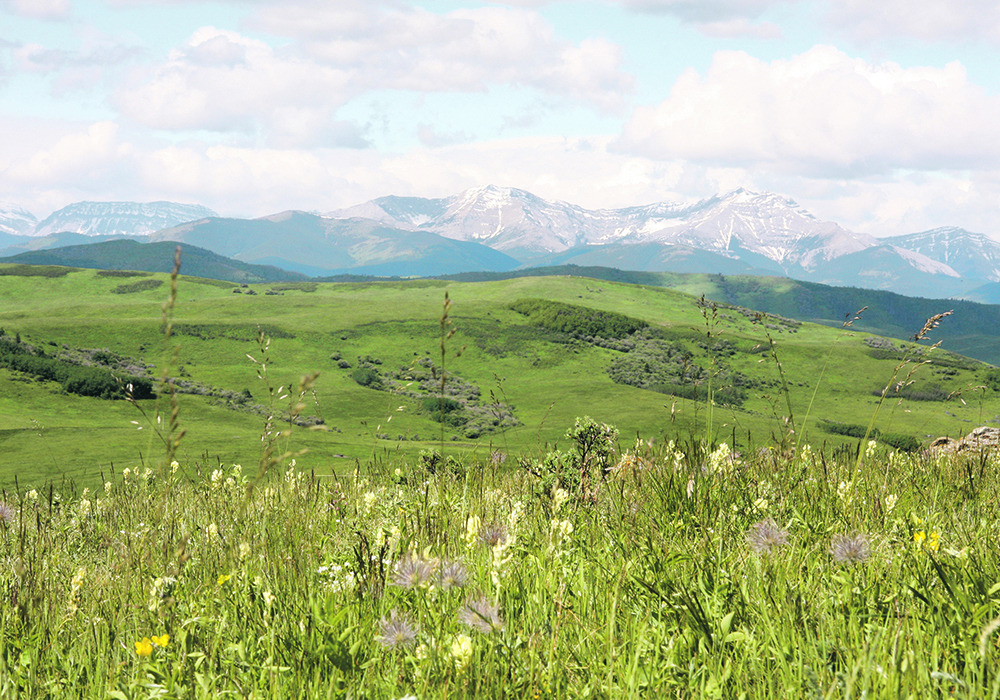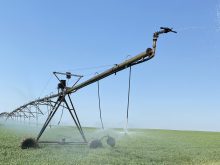Company attempts to gain approval from Alberta Energy Regulator to begin drilling and exploration at Grassy Mountain
A company’s bid to start coal exploration at Grassy Mountain in Alberta’s Eastern Slopes has raised fears the initiative will renew a wider push for open-pit coal mining.
It makes no sense to conduct coal mining that could potentially contaminate water used by farmers, ranchers and irrigation across southern Alberta, said High River mayor Craig Snodgrass.
“You’ve got a massive industry down there that relies on that water being clean to produce that food … There is not enough jobs or money that can be possibly generated by the coal industry on the Eastern Slopes to make it worthwhile.”
Read Also

Crop quality looks good this year across Prairies
Crop quality looks real good this year, with the exception of durum.
Related stories on this issue:
- Country stars speak out against coal mining
- Report recommends Eastern Slopes coal ban
- Alberta premier’s coal comments surprise opponenets
Northback Holdings Corp. made three applications Sept. 6 to the Alberta Energy Regulator as part of its efforts to gain approval for a drilling and exploration program at Grassy Mountain, which is near Blairmore in the Crowsnest Pass. The company seeks to mine the site for coal to make steel.
During a meeting Sept. 25, High River town council unanimously approved sending a statement of concern to the AER that opposes the project, said Snodgrass.
The Alberta government decided in 2020 to rescind a coal policy dating back to 1976, opening much of the Eastern Slopes of Alberta’s Rocky Mountains to potential open-pit coal mining. It sparked widespread opposition, so the policy was reinstated in 2021 pending further consultation.
Following extensive public input gathered by an independent committee, a ministerial order in 2022 by then-Energy Minister Sonya Savage restricted new coal exploration and development in the Eastern Slopes.
However, the order isn’t a permanent solution and can be rescinded at any time, said rancher Laura Laing of the Plateau Cattle Co., a ranching operation west of Nanton, Alta.
She said the election of Danielle Smith as premier offers no protection against coal mining development because she voiced support for coal mining while campaigning for the UCP leadership.
The Alberta Wilderness Association said in a letter Sept. 21 to Smith and Energy and Minerals Minister Brian Jean that the ministerial order “is at risk of being violated” by ongoing coal projects that include Grassy Mountain.
In a separate statement to the AER, the AWA said applications by Northback Holdings should be immediately denied.
However, an email Sept. 28 from Jean’s office said the order allows for exceptions for active coal mines and advanced coal projects, as well as for safety and security activities.
“Grassy Mountain has had a project summary and an environmental impact assessment filed with the AER for several years before the 2022 ministerial order and thus it qualifies as an advanced coal project.”
The provincial government is “keeping strong restrictions in place on coal mining,” said the email. “The applications for these exploration drilling activities are being reviewed by the AER. An application does not necessarily mean it will be approved.”
Northback Holdings was previously known as Benga Mining Ltd., which sought to start an open-pit coal mine at Grassy Mountain on a site that had been mined decades ago.
Benga’s project was rejected in 2021 by a joint federal-provincial review panel for the AER. It determined a new coal mine wasn’t in the public interest because of potential impact on fish and water quality, which outweighed the economic benefits.
Requests by Benga and two First Nations to appeal the decision were denied last year by the Alberta Court of Appeal and the Supreme Court of Canada. The project was also rejected by the federal government following a review of the panel’s report and other information.
Snodgrass said he finds it baffling that coal exploration is now being considered for Grassy Mountain, which is part of the Oldman River watershed within the Saskatchewan River system. “How can the (Alberta) government and the AER accept this application, which is trying to piggyback on a project that has already been denied by the AER and the federal government?” he said. “Why any of our ministers or MLAs or anybody in our current Alberta government wants to do this to Alberta, it’s mind boggling to me.”
The Eastern Slopes feed the Saskatchewan River system, which provides water for much of the Prairies. Drought in much of Western Canada this year saw water shortage advisories declared in many river basins.
Open-pit coal mining involves extensive use of water to wash coal, which sparks fears about water allocation and contamination, said Snodgrass.
An open letter by 35 scientists at the University of Alberta to all members of the United Conservative Party caucus said in 2021 “there is no reliable method to stop leaching of hazardous waste produced by surface coal mining into groundwater where, inevitably, it will pollute precious watersheds we all depend on that are already under severe stress.”


















